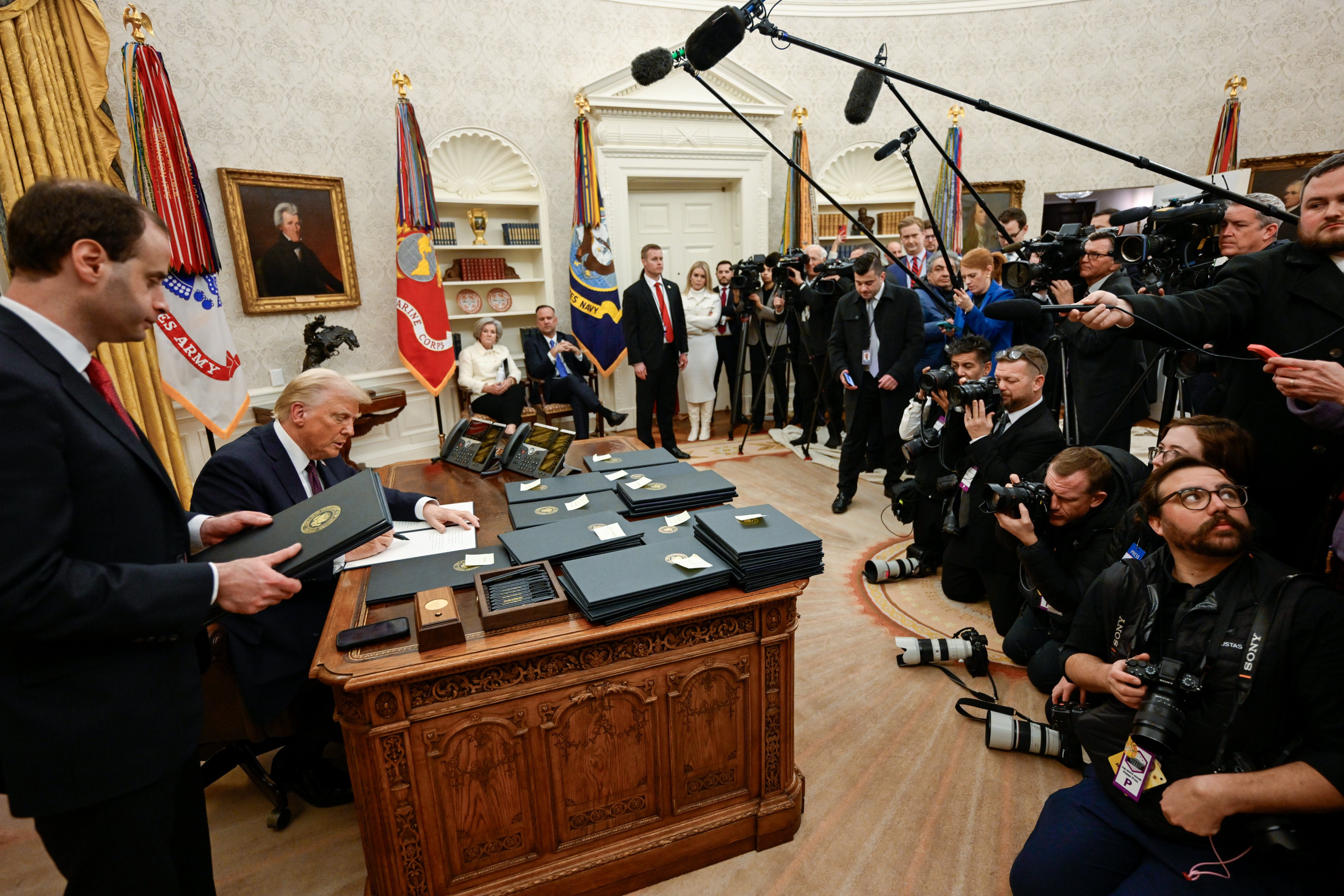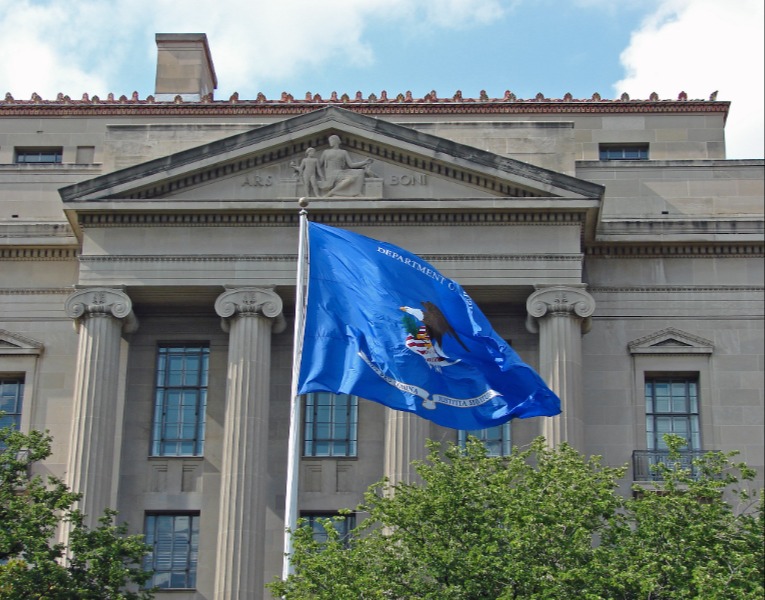Does Sessions Have to Recuse Himself on Russia Investigations?
The Russian Connection gravitational vortex continues to pull at the new administration, fed almost daily by new allegations and reporting. Reuters reported over the weekend on three separate FBI probes into Russian interference in the election, including the counterintelligence investigation potentially implicating the Trump campaign.
Published by The Lawfare Institute
in Cooperation With

The Russian Connection gravitational vortex continues to pull at the new administration, fed almost daily by new allegations and reporting. Reuters reported over the weekend on three separate FBI probes into Russian interference in the election, including the counterintelligence investigation potentially implicating the Trump campaign. Not to be outdone, yesterday, the New York Times, the Washington Post, and the Wall Street Journal all weighed in with additional reports of questionable activities and ties between Trump associates and Russia.
One legal issue looming in the background is the appropriate role of Attorney General Jeff Sessions in ongoing investigations.
Sessions served as the chairman of the Trump campaign’s national security advisory committee. His close affiliation with Trump and the campaign, and the potential conflicts of interest that creates, has led members of Congress and the public to call for his recusal.
The Michael Flynn investigation serves to highlight the Attorney General’s conflicts issue. The Washington Post reported late last week that former-National Security Adviser and top military adviser to the Trump campaign Michael Flynn may have lied to the FBI during an investigation of his calls with the Russian ambassador. Although it isn’t clear Flynn was intentionally misleading the FBI, and the FBI is not expected to recommend charges, the Department of Justice will have to decide whether to bring charges under 18 U.S.C. § 1001, which makes it a felony to lie about a fact material to the course of a federal investigation.
Meanwhile, President Trump’s assertion at last week’s press conference that he has directed the Attorney General to investigate administration leaks potentially worsens the perception that the Attorney General lacks independence.
All this raises the stakes of and pressure for recusal on investigations related to President Trump and Russia generally. So what are the Attorney General’s legal recusal obligations, and how might those obligations be enforced?
The Law of Recusal
Under 28 U.S.C. § 528, the Attorney General “shall promulgate rules and regulations which require the disqualification of any officer or employee of the Department of Justice . . . from participation in a particular investigation or prosecution if such participation may result in a personal, financial, or political conflict of interest, or the appearance thereof.” So the statute requires recusal where an actual or apparent conflict exists, but leaves it to the Attorney General to promulgate regulations with more detailed criteria for assessing such conflicts. And as with many conflict of interest provisions, the law makes clear that even an appearance of such a conflict is legally problematic.
The operative DOJ regulation is at 28 C.F.R. § 45.2 (a section titled “Disqualification arising from personal or political relationship”). Under the regulation, “no employee shall participate in a criminal investigation or prosecution if he has a personal or political relationship with” either “any person or organization substantially involved in the conduct that is the subject of the investigation or prosecution” or “any person or organization which he knows has a specific and substantial interest that would be directly affected by the outcome of the investigation or prosecution.”
The regulation defines “political relationship” as “a close identification with an elected official, a candidate (whether or not successful) for elective, public office, a political party, or a campaign organization, arising from service as a principal adviser thereto or a principal official thereof.” So as a principal adviser to Donald Trump’s campaign, Sessions seems to fall squarely into the provision, even if you ignore the very real possibility that Sessions himself might have an interest in the outcome.
What’s critical is that the ethics laws here protect faith in our institutions by centering on even the appearance of conflicts. The analysis is not whether one thinks Attorney General Sessions personally can compartmentalize his past allegiance to the Trump campaign and dispassionately conduct the investigation. The regulation’s exemption provision requires a finding not only that the employee can be impartial, but also that “the employee’s participation would not create an appearance of a conflict of interest likely to affect the public perception of the integrity of the investigation or prosecution.” Whatever one thinks of Sessions’s personal probity, it seems clear that his involvement in an investigation of the Trump campaign might cause a reasonable observer to question the investigation’s integrity. During his confirmation hearings, Sessions himself acknowledged the importance of the mere appearance of conflict when he indicated that he would recuse himself from any investigations into Secretary Clinton’s email because comments that he made during the campaign “could place [his] objectivity in question.”
All that said, this is a legal obligation with no practical legal enforcement mechanism. Agency ethics regulations are enforced by means of disciplinary proceedings at DOJ. As the head of the agency, Sessions isn’t likely to discipline himself for violating the regulation. And the regulation in question specifies that it “pertains to agency management and is not intended to create rights enforceable by private individuals and organizations.” So nobody outside is either.
Furthermore, these aren’t criminal laws. The primary criminal ethics law implicating recusal is 18 U.S.C. § 208, which prohibits an official’s participating in a matter in which the individual (or someone with whom the individual has a particular relationship) has a financial interest. The charge here isn’t that Sessions has a financial interest in the outcome, but rather that he has a personal and political conflict.
Political, Not Legal, Enforcement
As with many obligations, the real constraints here aren’t statutory or regulatory. They’re political.
We’ve seen the political enforcement mechanisms at work in the recent past—in Attorney General Lynch’s airport tarmac imbroglio. After the airport tarmac meeting with Bill Clinton, Lynch faced enormous political pressure for recusal from the Clinton email investigation. While Lynch didn’t fully recuse herself, she indicated that “she would accept whatever recommendations career prosecutors and the F.B.I. director made about whether to bring charges in the case.” She publicly bound herself to the recommendations of others, acknowledging that her involvement in the case “would raise questions of a conflict of interest.”
Lynch’s own handling of this matter was far from best practices. But note that she also did not fall so clearly into DOJ’s regulatory mandate as Sessions now does. The Sessions ties to the Trump campaign are far more substantial than the airport tarmac meeting. And in ordinary times, you’d expect to see a full-scale recusal from all aspects of any investigation relating in any way to the Trump campaign.
But these aren’t ordinary times and this isn’t an ordinary administration. While the administration has shown itself susceptible to political pressure in the Flynn firing, the bar seems to be high.
Special Counsel
Parallel to the recusal question is the issue of an independent investigation. On Friday, the New York Times editorial board called for a “special prosecutor” to proceed with the investigation. As Paul Rosenzweig highlighted on Lawfare, what the Times editorial board should have argued for was not a “special prosecutor,” but a special counsel:
[T]o create an independent investigation and to generate as much confidence as possible in the ultimate result, the Attorney General should exercise his regulatory authority to appoint a "special counsel" to lead the inquiry. As historical practice and precedent make clear, the special counsel may be appointed from within the current ranks of the Department of Justice or, at the Attorney General's discretion, from outside the Federal government. The final step would be for the AG to select to lead the inquiry a prominent Republican—perhaps one who is not affiliated with the #NeverTrump wing of the party.
On Wednesday, eleven Democratic senators called for such an appointment, arguing that it was necessary to “maintain the confidence, credibility, and impartiality of the Department of Justice.”
Notably, when Sessions was asked at his confirmation hearings about appointing a special counsel, he responded with a comment about recusal: “I don’t want to be in a position where every time the issue comes up, the attorney general recuses himself.” Importantly, recusal is not the same as appointing a special counsel, and the regulations envision cases in which the decision to appoint a special counsel is made by the Acting Attorney General where the Attorney General has been recused. While a special counsel is never legally required, there does appear to be an argument that recusal is legally required (even if the obligation lacks a viable enforcement mechanism).
If Sessions is concerned about having to make many recusal determinations across a sprawling investigation, that’s exactly what the special counsel regulations are intended to remedy.





